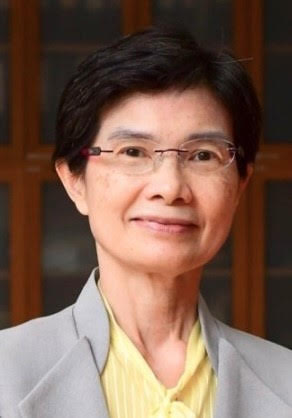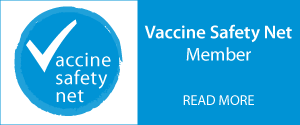
A member of both Brighton Collaboration and the Safety Platform for Emergency vACcines project’s Meta-DSMB, Dr. Punnee Pitisuttithum not only has extensive experience serving on Data and Safety Monitoring Boards (DSMBs) but also as a principal investigator at vaccine clinical trial sites. Through her roles in clinical trials for HIV, dengue, and chikungunya vaccines, Dr. Pitisuttithum has contributed to the implementation of active vaccine safety surveillance activities that build relationships and trust at the community level.
Dr. Pitisuttithum was a clinical lead of Thailand’s HIV vaccine trial that ran from 2003 – 2006 in collaboration with the Thailand Ministry of Public Health, the U.S. Military HIV Research Program, and the U.S. National Institutes of Health. Community engagement and staff preparation activities began one year in advance of the trial. “I think one successful factor was the involvement of the community from the very beginning,” recounts Dr. Pitisuttithum. Communication efforts took place early to clarify the purpose of the HIV vaccine trial, why it was taking place in Thailand, and why two provinces were selected as study sites. One of the key messages to communicate to the participants was that it was impossible to contract HIV from the vaccine. “That was one important message that we delivered well ahead of the trial implementation,” she says.
Staffing at study sites was consistent, which allowed for building relationships with study participants. Each time a participant came to the clinic, they saw the same team of nurses and doctors. This consistency created more comfort around sharing health information, asking questions, and expressing concerns. Staff were also available by phone 24 hours a day so that participants could call at any time during the trial.
These community engagement successes were replicated in the world’s first commercial dengue vaccine trial. The trial ran in Thailand from October 2011 – 2016, and Dr. Pitisuttithum was a site PI at one of the provinces. Unlike the HIV vaccine trial, the dengue vaccine trials involved children ages two and older, so communication efforts differed in how they targeted parents. For example, the study team aligned informational campaigns as edutainment with Mother’s Day, Father’s Day, and National Children’s Day.
The study’s comprehensive active safety surveillance system reached participants in four main settings—clinic, school, hospital, and home. In addition to the 24-hour phone call access, dengue vaccine trial participants were provided with an SMS system to get in touch with trial staff, as well as a pop-up system at hospitals. If a child participant came to the hospital, the hospital information system informed the vaccine clinical trial staff. When child participants missed school, clinical trial staff would follow up with parents to understand the reasons for the absence. And if staff could not reach parents on the phone, with parent permission, they would conduct home visits.
Now, Dr. Pitisuttithum is applying what she’s learned about community engagement and building trust to a chikungunya vaccine trial in Bangkok. Participants range from 12 years to older adults, over 65. The trial, funded by the Coalition for Epidemic Preparedness Innovations (CEPI), recently concluded its early phase II of the dose-finding study where they compared the interval of safety and immune responses of low and high doses of the chikungunya vaccine. Based on the results, the trial DSMB has chosen the higher dose, and the trial will proceed to its next phase once the higher doses are manufactured. Dr. Pitisuttithum hopes to start the next phase in the coming months.



